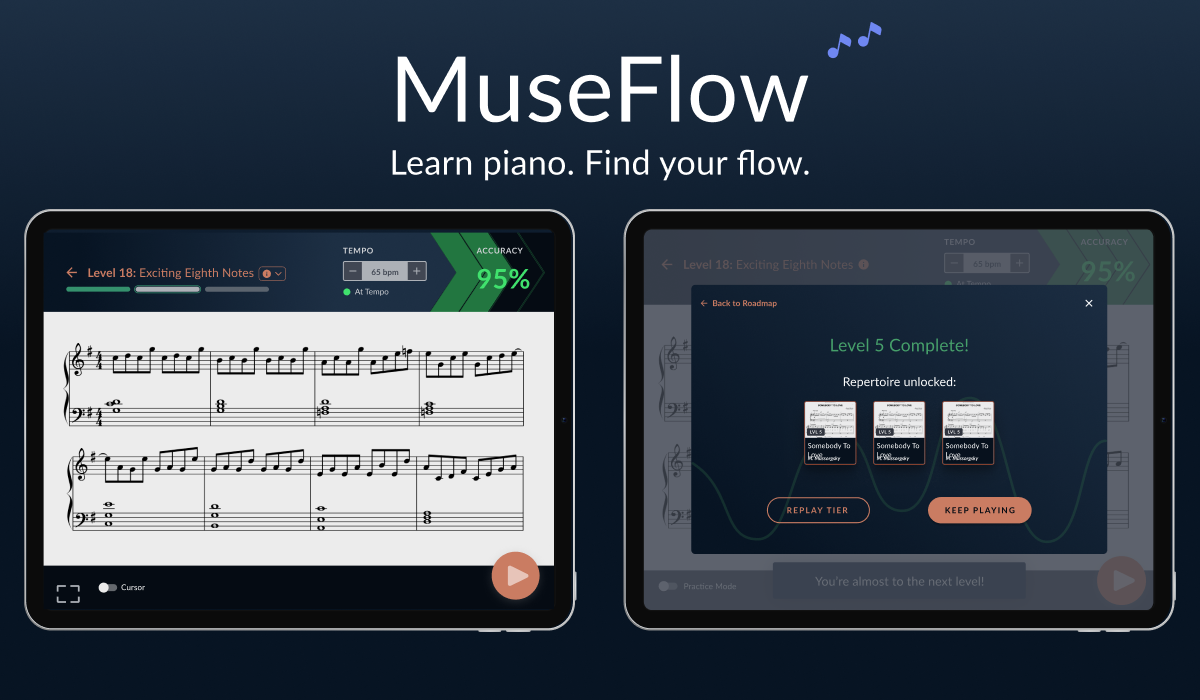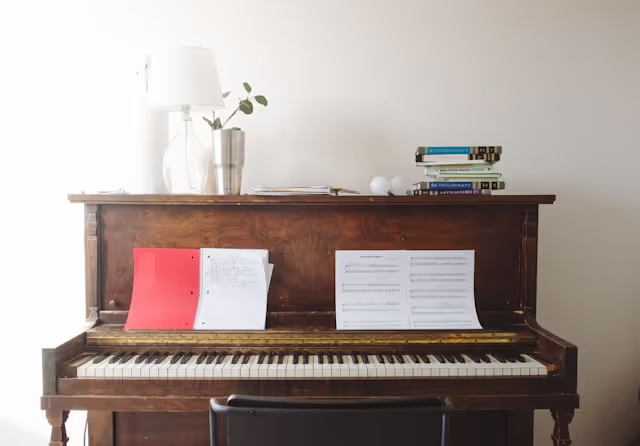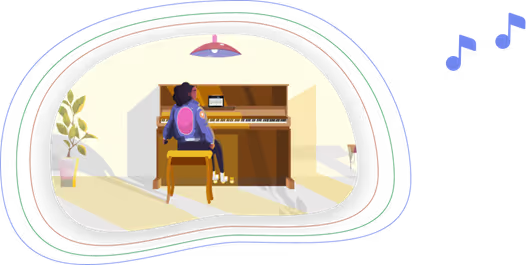Are Piano Apps Worth It?Why Users Are Saying Yes to MuseFlow!
There are so many reasons why a piano app could fail or why it could be worth it. Today, let’s hear some feedback and insights from MuseFlow’s users and see why they’re saying that it is 100% worth it and what they’re getting from using the piano app!
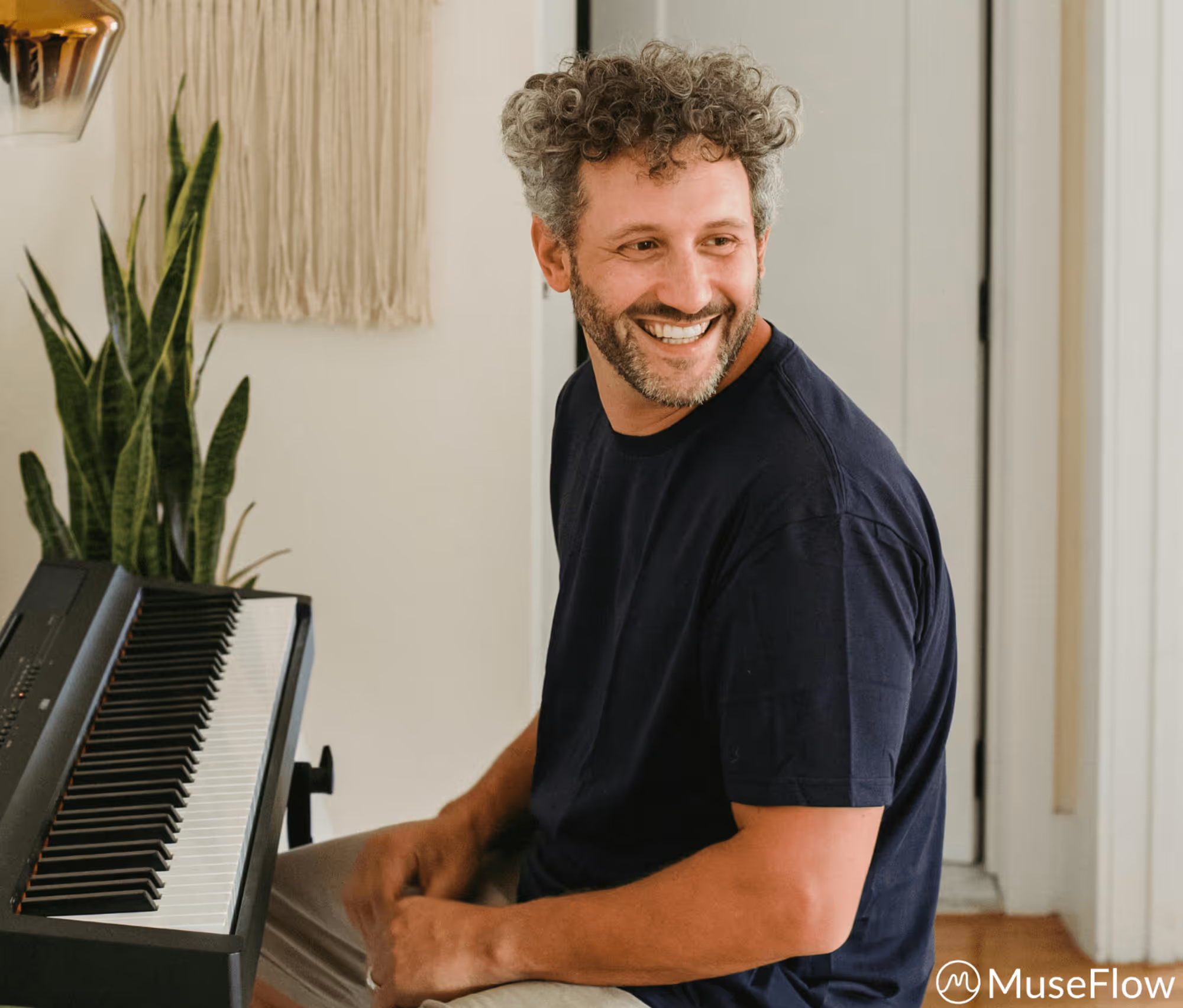
Learning the “Look Ahead” Habit
If there’s one thing that needs to be learned by musicians, it’s the ability to prepare and look ahead of what you’re currently playing so that you can play the next thing correctly.
Megan (19-35yrs old/beginner), says:
“My main goal is to learn to play a'vista. I have observed progress since I started using MuseFlow. The app works very smoothly and has helped me learn to read notation. I believe it can gradually improve my a'vista playing, as I've found the 'looking ahead' habit easier to develop with the MuseFlow app. The level of difficulty adapts very well.”
With the ability to turn on and off the cursor that’s guiding you through the music, MuseFlow allows you to look ahead of the music and not be stuck looking at exactly what you’re playing in that very moment. It’s a crucial skill one needs to excel in any form of music playing, especially in sight reading.
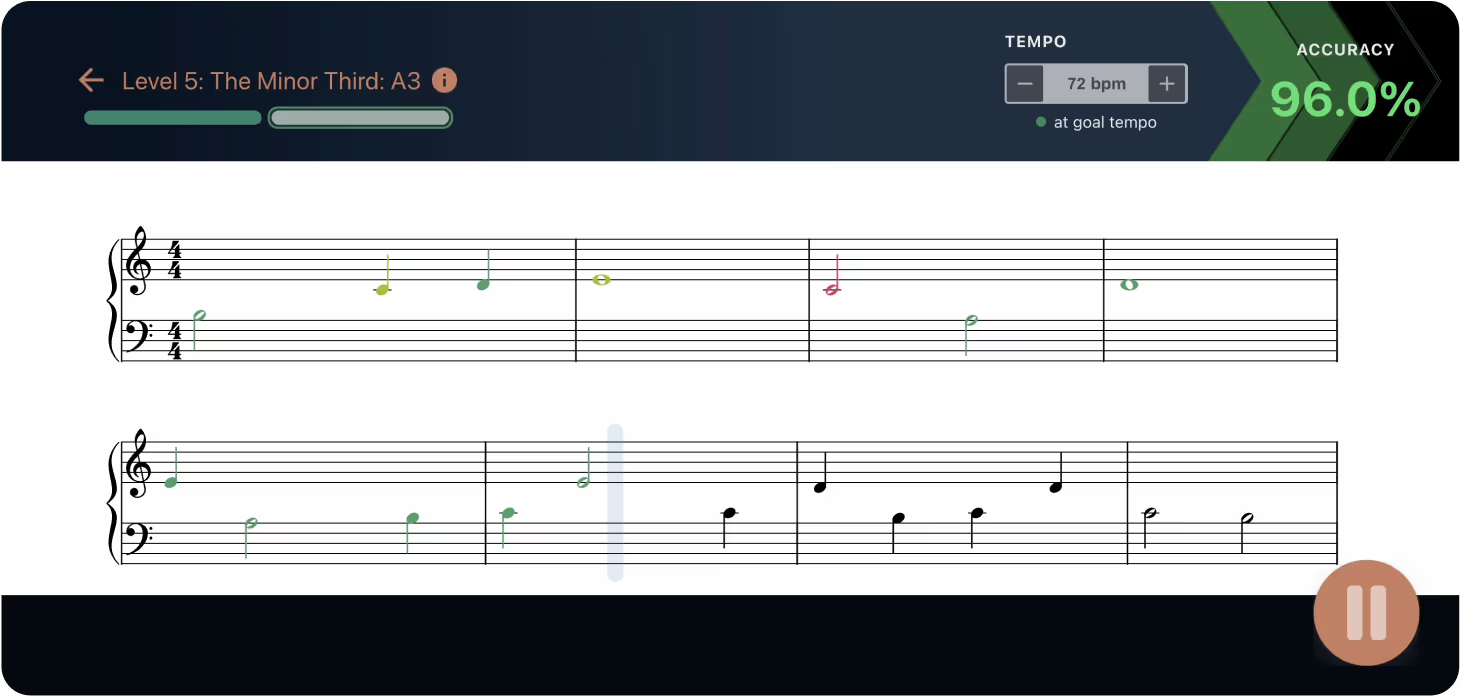
Achievements Are the Rewards Themselves
Most apps out there use the typical type of gamification that’s considered extrinsically motivating. Badges, stars, etc… these are external motivators that make you want to earn more. MuseFlow, on the other hand, uses gamification that’s intrinsically motivating. You can literally feel yourself getting it! Learning the new skill becomes the reward, not the collection of stars or in-app money or purchases.
Dennis (56-above/beginner) says:
“Any success I achieve is its own reward. Just having moved to the next higher level, I feel good and surprised that it went so quickly. That's a plus!”

The cofounders of MuseFlow believe that the Montessori method of encouragement is best for building intrinsic motivation. Instead of saying “good job beating that level!” you say “wow, you worked so hard on that level! Well done!” This helps foster the love of progress over the need for perfection.
MuseFlow is Like a Gym Partner
Just like Tonal is an AI-driven gym partner, MuseFlow is an AI-driven piano teacher! It’s your coach, your tutor, your teacher, but without any judgement. It celebrates your wins, tells you your faults and allows you to correct them, but never gets mad or frustrated. It guides you through exercise after exercise, and takes the burden off of people that are self-learners to figure out what to learn next.
Take a look at Kyle (19-25/Intermediate) says about MuseFlow:
“MuseFlow is like having a gym partner who guides you through a workout they’ve already planned out. I don’t have to spend time or energy coming up with exercises to train and wondering if it’s optimal, I can just follow along and focus solely on execution. There’s such an overload of information when it comes to learning piano that it’s so taxing (especially if you struggle with perfectionism) to come up with a routine alone. MF takes away a little bit of that decision making and it’s honestly so refreshing.”

MuseFlow is Like a Game!
This is rare in music education. Most people think of words like dedication, diligence, persistence, when they think of music ed. Instead, MuseFlow makes it like a game, with levels to beat, and by capturing that “aha” moment and giving it back to you on repeat. That moment when you realize you’re actually learning something, where you feel the neurons connecting in your brain when you actually grok a new idea! MuseFlow gives these moments back to you inn repeat, making the process feel more like play than like work.
See what Kalan (0-12/beginner) says about MuseFlow:
“I want to beat every level so that all the dots [on the roadmap] turn green.”
And what Daniel (19-35/beginner) says:
“The gamified approach to learning is brilliant, I'm addicted! The app provides instant feedback.”
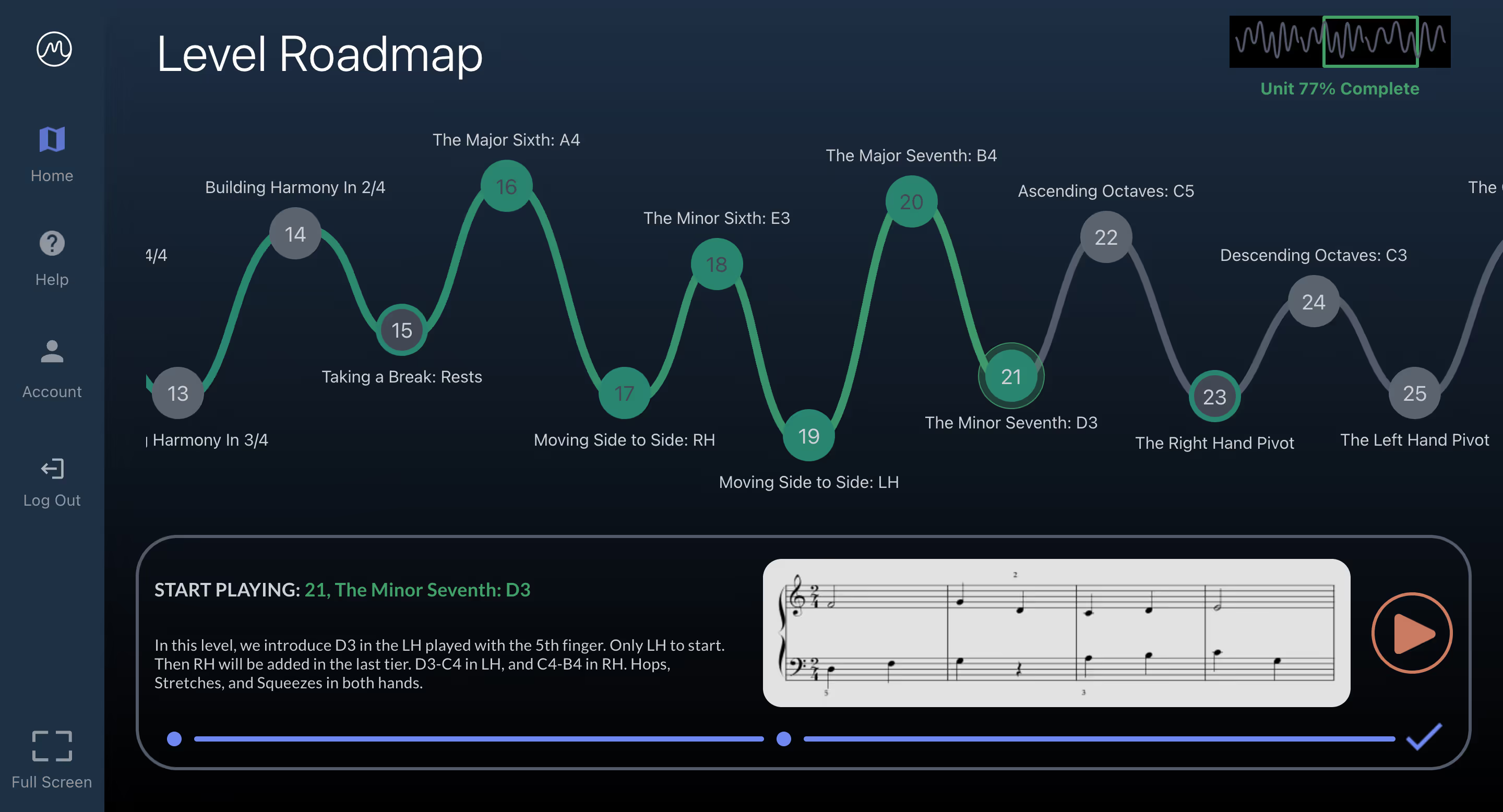
Conclusion
With a price tag of $24.99/mo or $189.99/yr, MuseFlow beats any private teacher by a landslide. With its new and sophisticated approach to piano education, MuseFlow answers the question “are piano apps worth it?” with a unilateral YES! Take a shot at it yourself. Enjoy the love of playing music, and let MuseFlow’s cofounders think when you do!

.svg)

.jpg)

